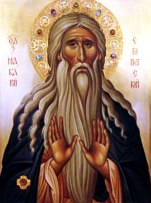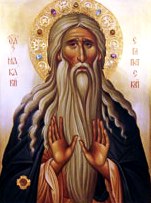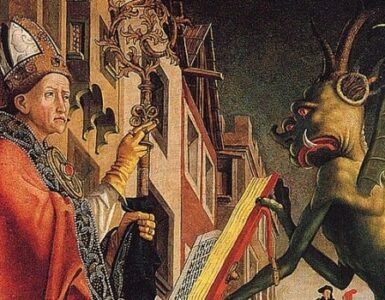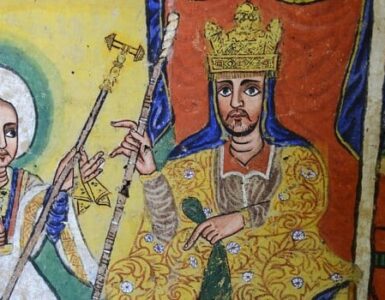Macarius lived in the fourth century and, as with many saints from that early period, there is very little information available about him. What we do know is that Macarius was named bishop of Jerusalem in the year 314. He was noted for his defense against the heresy of Arianism (denial of the divinity of Christ). Macarius was evidently present at the Council of Nicaea, since he was one of those who signed the documents from that Council.
Legend has it that Macarius was with Saint Helena when she discovered three crosses in Jerusalem. Legend further maintains that it was Macarius who suggested that a dying woman be touched with each of the crosses. When one of them instantly cured her, they determined that it was the true cross — the one on which our Lord was crucified. Macarius was then commissioned to erect a church over Christ’s sepulchre. Macarius died around the year 335, soon after the consecration of the basilica.
Lessons
Macarius’ name appears first among those of the bishops of Palestine who subscribed to the Council of Nicaea. St. Athanasius, in his encyclical letter to the bishops of Egypt and Libya, places the name of Macarius among those of bishops renowned for their orthodoxy.
Prayer
Father, we thank You for the early fathers in the Church who defended the faith and kept the flame of truth burning. Now, two thousand years later, we see how important it is for us to continue to defend the faith and not waiver in the winds of modernity. Help us, Father, to know, love and spread the gospel of Jesus. In His Name we pray. Amen.
Other Saints We Remember Today
Forty Holy Martyrs of Sebaste, Aremenia (320)
photo via WikimediaCommons: https://commons.wikimedia.org/wiki/File:Saint_Macarius_the_Egyptian.jpg












